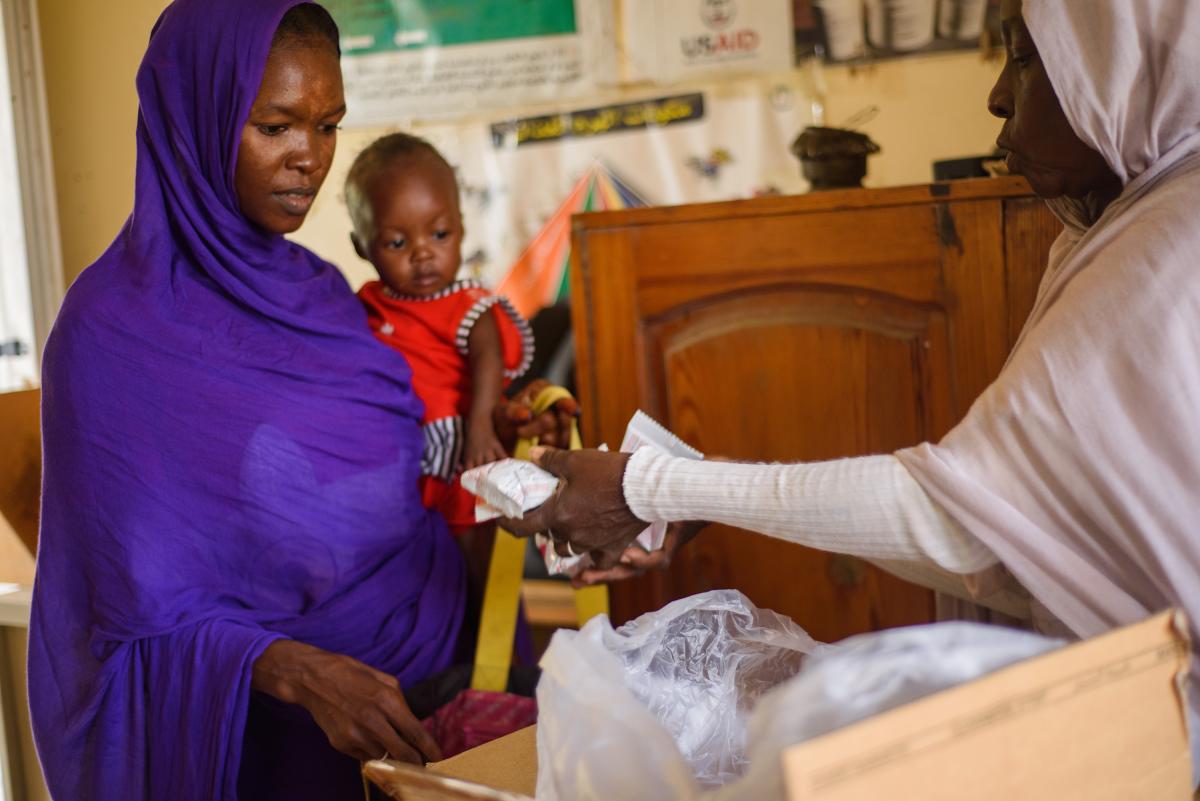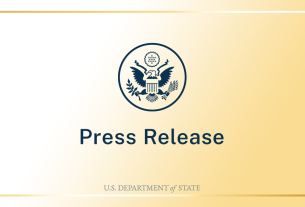An EU-funded programme has helped the twins recover, but much more needs to be done to prevent millions of other stories having a different ending.
Arafa Musa cuddles her twins, Mawada and Mushtaha, while waiting to be examined at Dar Al-Salam health facility in Port Sudan, occasionally speaking to them softly as they breastfeed in turns. They are at an EU-supported facility for their weekly checkup, after enrolling with the outpatient therapeutic programme for nutrition treatment and care.
Mawada suffers from severe acute malnutrition and Mushtaha from moderate acute malnutrition. Severe acute malnutrition is life-threatening and, without treatment, the children suffering from it are at high risk of death.
On the waiting bench are several other mothers with severely acutely malnourished children. Some of the children look small, thin, and frail while others have oedema – swelling in the feet.
These children are just a fraction of the hundreds of thousands battling the worst and most deadly form of malnutrition across Sudan. With the war continuing, the clashes intensifying in many states, and families forced out of their homes, parents and caretakers are struggling to find nutritious food to support the proper growth and development of their children, especially those below 5 years of age.
Globally, millions of children do not have access to diets that support healthy growth and development, quickly pushing them into malnutrition. Sudan has one of the highest rates of malnutrition among children in the world. Over 700,000 children are currently severely acutely malnourished and without urgent care and treatment, they are at high risk of death. Poor-quality diets remain a contributing driver of some of the malnutrition cases, especially during the ongoing crisis.
To ensure that children like Mawada and Mushtaha receive timely treatment, our humanitarian partner UNICEF, with EU support, is providing health and nutrition supplies, including ready-to-use therapeutic food (RUTF) and other essential nutrition items and medicines, to various health facilities, including in IDPs hotspots and conflict areas. This is in addition to supporting the service delivery through health facilities and mobile teams, including their operating costs, capacity building, and monitoring activities.
Every Tuesday, the outpatient therapeutic programme (OTP) clinic at Dar Al-Salam health facility run by a team of nutritionists, with Jawahir Bashir Ahmed as their lead, is open for the treatment of severely and moderately malnourished children:
Jawahir attends to the mothers – screening the children, measuring their weight and height, checking for oedema, and entering their records on the pink cards. This is followed by a session with the mothers on the children’s progress and the provision of the RUTF sachets they will need until the next appointment.
While waiting, the children undergo an appetite test. Each child is provided with a sachet of the RUTF if severely malnourished and ready-to-use supplementary food (RUSF) if moderately malnourished. Many are nibbling on the peanut-like nutritious paste and sipping water, but some are too weak to suck on it. The nutritionists watch them closely to identify those who fail the test, as it would signify another problem.
When it is Mawada’s turn for screening, her MUAC reading is still in the red zone. She eats the paste very well, but despite making progress, she is still severely malnourished, and her weight is only 5kg.
Arafa visited the facility a month ago with her two children – both unwell. Sadly, they were both malnourished with medical conditions. With immediate treatment, their health has greatly improved, and they are now enrolled with the outpatient programme, until they fully recover.
Like many mothers at the facility today, Arafa thought the food she provided her children was nutritious enough to support their growth. She would later learn from the nutritionist that the children needed nutrient-rich foods for proper growth and development.
“I fed them what we eat at home,” Arafa explained.
Arafa would like to diversify the diets of her children, but food availability and affordability remains a challenge.
Since enrolling with this programme, Arafa is also benefitting from the nutrition counselling provided at the health facility. She has learned that as infants grow, their nutrient needs change rapidly. She now knows how to combine the foods available at home to make better meals for her children. And that they should be fed frequently to ensure their nutrient needs are met.
While they are late achieving their growth milestones, Arafa is optimistic that, with the nutrition care provided at the facility, her children will thrive and get better soon.
“At Dar Al-Salam health facility, UNICEF supports the delivery of integrated healthcare services for children,” says Ahmed Mustafa, a UNICEF health and nutrition officer. “Malnourished children under 5 years are enrolled with the OTP programme, while mothers with children aged between 6 months to 5 years plus pregnant and lactating mothers are enrolled with the Mother and Child Cash Transfer Plus programme.”
During antenatal care sessions, mothers are enrolled with mother support groups to learn more about breastfeeding and feeding infants and young children.



